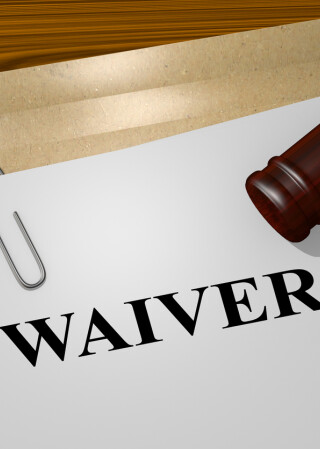Accidents can happen at any time and anywhere. Sometimes, it is at a time when we are having the most fun, for example, at an amusement park or for the daredevils, going tandem skydiving.
You may have just returned from a holidays on which you participated in an activity for which you were requested to sign a waiver. But do you actually know what you signed? Or what it means, if something goes wrong?
A waiver is a document or an act which waives a right or a claim. All of us come across requests to waive our rights, regularly. The waiver is an acknowledgment of the risks involved in the activity to be undertaken.
A waiver can be on paper or electronic. But sometimes, it is neither, and does not even require a signature. For example, during my recent holiday in Fiji, I saw a waiver in the form of a sign (see the photo below) at the resort’s private beach which stated:
“Beach Notice
No lifeguard on duty.
Children under 12 must be under adult supervision.
Take precautions for your own safety.
Sofitel Fiji & Resorts accepts no liability for personal loss or injury.”
Are waivers enforceable?
Often, waivers are complicated, poorly drafted and confusing. They are generally used by recreational service providers, tourism operators and even in some circumstances, retailers and hospitality venues.
For a waiver to be legally effective, it needs to be clear in its meaning and understood by the person signing it. If you are requested to sign a form, you should take time to read it and of course, if you have any questions, you should ask for clarification. Whether a waiver is enforceable or not will depend on many factors, such as: how has it been drafted and has it been sufficiently explained? It can also depend on the age of the person signing, that is, persons under 18 cannot legally waive their rights.
Can I claim for compensation after signing a waiver?
There is a general misconception that if you have signed a waiver, or a warning has been provided, you may not have the right to claim compensation if you suffer injury or loss during that activity.
The answer may depend on what caused the loss – was it an inherent risk of the activity, or was it a failure of the provider to ensure your safety? If the activity provider has breached their duty of care or the accident occurred because of their negligence, you may have legal entitlements. Take the example of a quad bike tour, during which an injury occurs due to the tyre of the quad bike coming off the bike. The provider has a duty of care to maintain the quad bike, to avoid the risk of injury. If there is evidence that the quad bike had not been properly maintained, then you may be able to make a claim.
If you have been injured, I recommend contacting one of our Injury Compensation Lawyers today, for advice about your rights.



